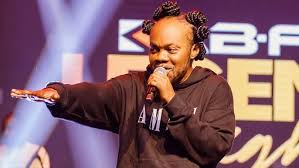There are musicians who entertain, and then there are those who explain a country to itself. Daddy Lumba belonged to the latter. And now, with his passing, we are confronted not just with grief but with absence. A kind of national grief that feels deeply personal.
Lumba didn’t sing to us. He sang through us. His voice was the bridge between confession and catharsis. Whether you were heartbroken, hustling, hungover, or newly in love, he had a song that felt like a mirror. But more than the music, it was his mastery of contradiction that made him timeless. Lumba was a paradox in motion. He could praise Jesus on Monday and release Aben Wo Ha by Friday. He sang like someone who had seen too much and yet somehow still believed in the beauty of the mess.
This is why his death doesn’t feel like just another celebrity loss. It feels like a fracture in our emotional infrastructure. We have lost the man who gave voice to what our fathers couldn’t say and what our mothers only prayed in silence.
For those of us who came of age in the 90s and 2000s, Lumba’s music wasn’t background. It was backbone. His lyrics soundtracked our heartbreaks, our family feuds, our first crushes, and our private contradictions. Boarding house dormitories hummed his tunes before prep. Love letters ended with his lyrics. He was the code, the comfort, and the caution all in one.
And perhaps that is what we must reckon with now. That Ghana’s most influential emotional historian is gone. No sponsored slogan can replace him. No medal can truly measure him. The man didn’t need validation. He was the validation.
Even now, social media can’t stop playing catch-up. One tweet says, “They can play 100 Lumba songs and I may not know the titles, but I can sing every word.” That is legacy. That is depth. That is someone who didn’t just release music but memories. Another fan said, “If you’re young, you won’t get Lumba. But when you grow and understand… , he hits you like truth you’ve always known but never said.” That is the kind of resonance no Billboard can chart.
This is not nostalgia speaking. It is clarity. Lumba’s catalogue outlived trends. He didn’t chase virality. He chased sincerity. And he caught it.
So what do we do now?
We mourn. But not performatively. We organize. A national concert. A vigil. A living archive. Something beyond tweets and tribute flyers. His death isn’t a headline. It is a chapter closing on a generation that learned how to feel out loud because one man refused to sing small. We didn’t just lose a musician. We lost Ghana’s emotional compass.
And maybe that is the hardest part. Not that he is gone, but that everything he sang about, love, loss, longing, money, betrayal, is still here. Still unfolding. Still begging for someone honest enough to tell it as it is.
We may never get another Lumba.
But we owe it to him and to ourselves to never forget the sound he gave our silence.
Rest well, Charles Kwadwo Fosu. You were a man who made us feel.
Writer: Kay Codjoe


Comments are closed.